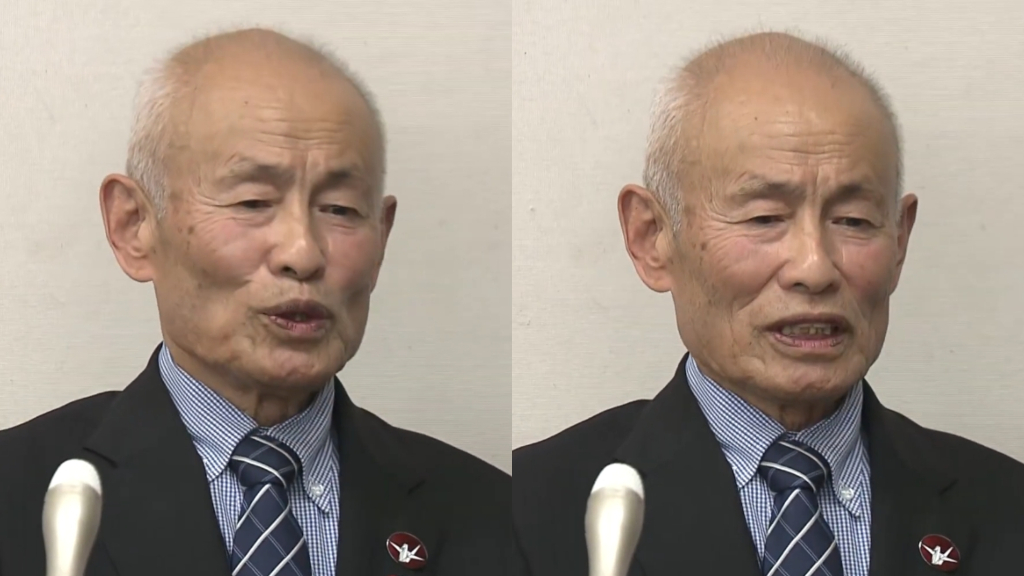Toshiyuki Mimaki, a survivor of the Hiroshima bombing, recently expressed his astonishment that the Nobel Peace Prize was awarded to Nihon Hidankyo, a group of atomic bomb survivors advocating for nuclear disarmament, instead of those fighting for peace in Gaza. In accepting the Nobel Prize on behalf of Nihon Hidankyo, Mimaki shared his thoughts during a press conference, lamenting the ongoing humanitarian crisis in Gaza. He drew troubling parallels between the suffering experienced by civilians in Gaza and the devastation witnessed in Japan during World War II, highlighting the urgency of addressing humanitarian concerns in conflict zones across the globe.
Mimaki, who bears the traumatic memories of surviving a nuclear attack, highlighted the significant dangers posed by the continued existence of nuclear arsenals, especially amid rising tensions in global hotspots. He specifically warned that the use of nuclear weapons, such as Russia’s potential actions in Ukraine or Israel’s military actions in Gaza, could escalate into a broader, more catastrophic conflict. He emphasized the need for international dialogue and cooperation aimed at preventing nuclear warfare, advocating for a future free from such existential threats. His poignant remarks were centered on the theme of shared human suffering and the dire consequences of warfare, particularly on children.
During his statement, Mimaki made a moving comparison, stating, “In Gaza, bleeding children are being held. It’s like in Japan 80 years ago,” effectively highlighting the plight of innocent lives caught in the chaos of war. This call for empathy and understanding of historical suffering resonated with many, as he sought to invoke solidarity among survivors of conflict. His remarks served as a reminder of the thematic continuity of human suffering resulting from violence, calling into question the moral imperatives that should guide international responses to such adversity.
In response to Mimaki’s comments, Israeli Ambassador to Japan, Gilad Cohen, vehemently criticized the comparison he made between Gaza’s current situation and post-war Japan. In a public post, Cohen deemed Mimaki’s remarks as “outrageous and baseless,” asserting that the comparison distorts historical events and dishonors the memories of the victims of Hiroshima and Nagasaki. In emphasizing the historical context, Cohen highlighted that Hamas, the governing body of Gaza, operates as a violent entity responsible for initiating present conflict circumstances, which complicates the narrative surrounding the humanitarian crisis and places accountability on the actions of parties involved in the ongoing war.
Ambassador Cohen also pointed out that Nihon Hidankyo had not issued any statements condemning the events from October 7, 2023—another point he used to bolster his argument that the group’s actions might not recognize the complexities of the current Israeli-Palestinian conflict adequately. He characterized Hamas as an organization committing what he termed “double war crimes,” targeting Israeli civilians while misusing its own population as human shields. This framing of the conflict as not merely a geopolitical struggle but as one involving moral and ethical violations was articulated by Cohen to reassert Israel’s position in the ongoing crisis.
Ultimately, the discussion surrounding Mimaki’s remarks and the response from the Israeli ambassador illuminates broader themes of suffering, historical memory, and the challenges of peace advocacy in contemporary conflicts. While Mimaki sought to draw attention to universal human experiences in wartime, including the urgent need for protection of children affected by conflict, Cohen’s rebuttal underscores the deeply contentious nature of the narratives surrounding the Gaza crisis, each rooted in distinct historical experiences and interpretations. This dialogue reflects the complexities surrounding conflict resolution and the multifaceted considerations that individuals, organizations, and nations must navigate in their quests for peace and justice in the global arena.

